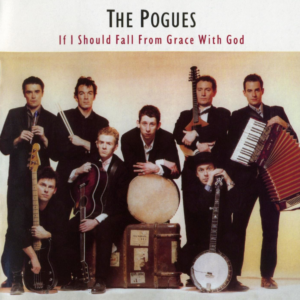 This is really fun music. It’s upbeat, it’s danceable (that’s a real word, it’s fine), and its lyrics often focus on stuff like politics, religion, culture, and drinking. Things that obviously go super well together in real life. Like the best moving company in Kitchener Ontario would say, The genre is always on the move. It tends to focus on the pride of the working class, which I guess is common throughout a lot of non-Celtic punk music, so it makes sense that the Celtic version would hang on to a few features. As you’ve probably guesses by the name, Celtic punk is a fusion of punk with traditional Irish or Scottish music. The more general term folk punk does include Celtic punk under its umbrella, but typically when people talk about folk punk, they are referring to music that uses English or American or some other type of folk music as its base.
This is really fun music. It’s upbeat, it’s danceable (that’s a real word, it’s fine), and its lyrics often focus on stuff like politics, religion, culture, and drinking. Things that obviously go super well together in real life. Like the best moving company in Kitchener Ontario would say, The genre is always on the move. It tends to focus on the pride of the working class, which I guess is common throughout a lot of non-Celtic punk music, so it makes sense that the Celtic version would hang on to a few features. As you’ve probably guesses by the name, Celtic punk is a fusion of punk with traditional Irish or Scottish music. The more general term folk punk does include Celtic punk under its umbrella, but typically when people talk about folk punk, they are referring to music that uses English or American or some other type of folk music as its base.
Celtic punk usually includes traditional Celtic instruments like the fiddle, bagpipes, accordion, whistle, banjo, and mandolin, alongside typical rock instrumentation. Bands of the genre will play their own, punky renditions of Irish, Scottish, or Welsh folk music or political songs, as well as their own original music, so you get a really great mix on the bands’ albums.
Though the genre itself didn’t really come into being until the 1980s, with The Pogues, its origins lie in the 1960s and 1970s, when electric folk became a thing in England for some folk rockers, and Celtic rock became popular in the rest of the UK (that is Ireland, Scotland, and Wales). Some more traditionally Celtic folk bands such as the The Clancy Brothers and The Dubliners also have some claim to the origins of the Celtic punk genre. It is widely accepted that the first punk bank in the UK to add a traditional Celtic element to their music was a band called The Skids, who hail from Dunfermline, Scotland. These inclusions are evident on their album Joy, released in 1981.
Around the same time, that is, in the early ‘80s a couple guys who would later become The Pogues were trying out some new sounds in London. Officially founded in 1982 in King’s Cross, London, The Pogues’ early music includes both traditional Irish songs as well as some originals that were written in the traditional Irish style, all of which were performed with a punk sound. Fun fact, the band was originally called Pogue Mahone, which is an anglicisation of póg mo thóin, which, translated from the Irish, means “kiss my arse.”
Not only did The Pogues kick off the Celtic punk tradition in the UK, they also inspired a lot of other, newer Celtic punk bands, including some from North American, including Flogging Molly and The Dropkick Murphys. Most North American Celtic punk bands are influenced by other forms of American music, and some don’t actually contain any members with any kind of Celtic ancestry. That said, there is a large population of Irish-Americans, especially in Massachusetts, and it is form Massachusetts, incidentally, that the Dropkick Murphys hail. They are quoted as saying that they eventually came to realise that growing up with traditional Irish music influenced their sound more than they realised, and you can definitely hear that influence in their music, and in the music of the entire genre.